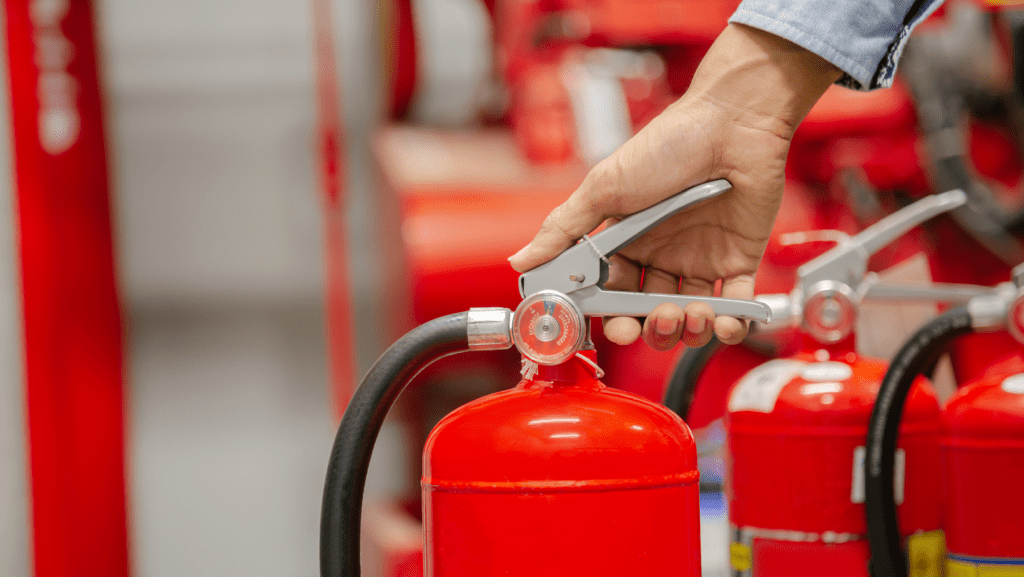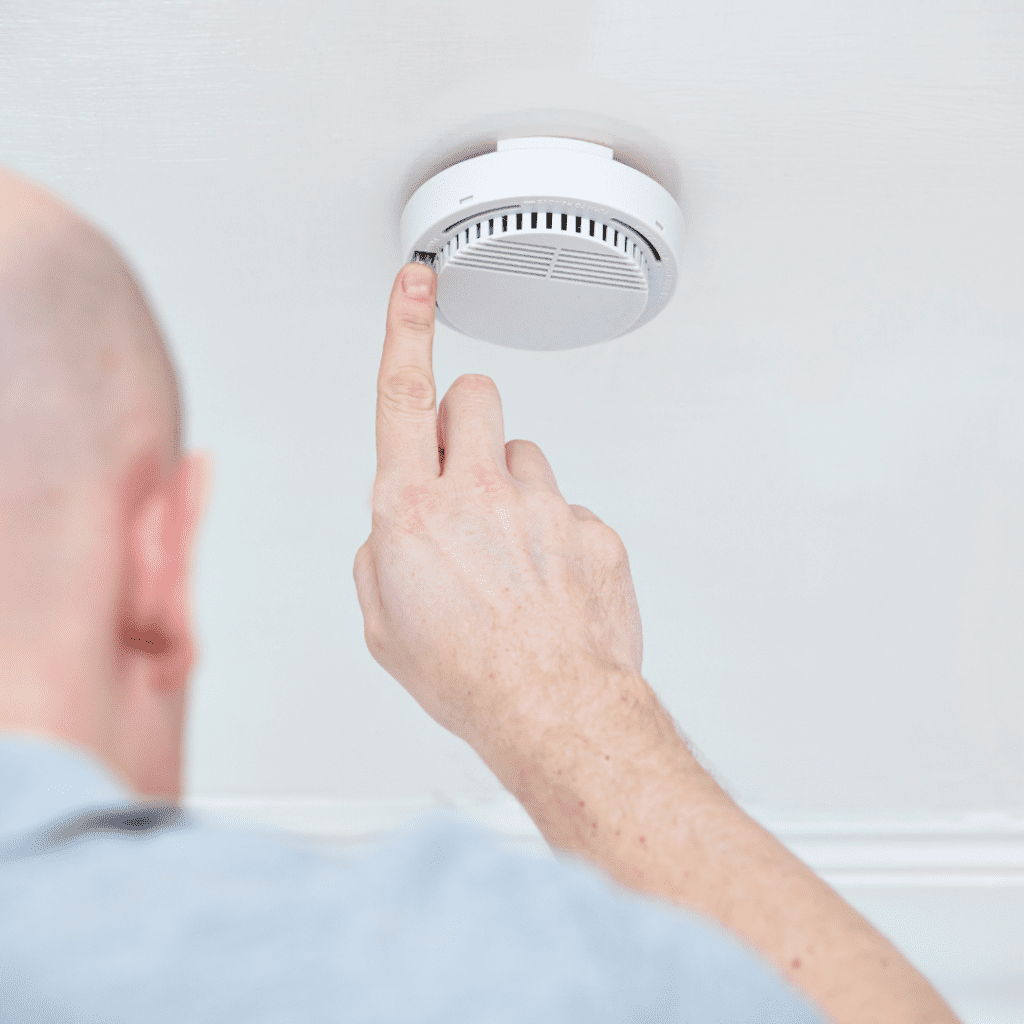

In the blink of an eye, a house fire can change your life. Have you taken precautions to protect your home against a fire?
Every 23 seconds in the United States, fire departments leap into action. In 2021 alone, 1,353,500 fires ignited, resulting in 3,800 deaths and 14,700 injuries.
Here are 6 fire safety tips to prevent fires, protect lives, minimize property damage, and be well-prepared for the unexpected!
1. Check Your Smoke Alarms
Have you ever gotten startled when your smoke alarm goes off unexpectedly? It’s not just a noisy gadget, it’s your first line of defense in a fire. Let’s make sure yours is up to the task!
- Location Matters. Smoke alarms are legally required on every level of your home and near bedrooms or sleeping areas.
- Test Monthly. Don’t just assume your smoke alarm works, test your smoke alarm every month to make sure it’s functioning.
- Battery Check. Replace batteries at least once a year, if you hear a ‘chirping’ sound, that means it’s time for a new battery.


2. Create an Escape Plan
To swiftly respond to a home fire, create and regularly practice a family escape plan. Ensure all family members know their roles in case of a fire, identifying two exits per room and an outdoor meeting point. Practice day and night evacuations, aiming for under two minutes. Assign someone to oversee the safe evacuation of infants, young children, or pets, with a backup person if needed.
>> While You’re at It, Here’s How to Keep Your Pet Safe
3. Cook Carefully
Grease fires can ignite quickly and become extremely dangerous. To prevent grease fires, use a thermometer to avoid overheating the oil. Keep a lid nearby to smother flames in case a grease fire does occur and remember to never use water to put out a grease fire.
Other helpful tips:
- Monitor Appliances and Electrical Cords. Inspect your appliances and electrical cords for signs of wear or damage. Replace or repair damaged items such as faulty appliances or frayed cords can lead to electrical fires.
- Use Proper Cooking Utensils. Wooden or plastic utensils are less likely to conduct heat and cause burns. Be sure to keep oven mitts or potholders handy to protect your hands.
4. Be Careful with Matches and Lighters Around Kids


Store all matches and lighters up high where children cannot see or reach them – preferably in a locked cabinet. Teach your children that matches, lighters and fire extinguishers are tools for adults and are not toys.
5. Use a Quality Space Heater
It’s important to invest in a quality space heater from a reputable manufacturer with safety features like tip-over and overheat protection. Place the space heater on a stable, flat surface away from foot traffic and out of reach of children and pets. There should be at least three feet of clearance around the heater, and it should never be placed near flammable materials or water sources.
Never leave your space heater running unattended, and to prevent it from overheating plug it directly into the wall, not a power strip or extension cord.
6. Dispose of Cigarettes Properly
Careless smoking is the leading cause of fire related deaths in North America. Do not smoke in bed or when you are drowsy. A misplaced or dropped cigarette can lead to fires. Make sure cigarette butts are soaked with water before being discarded.




